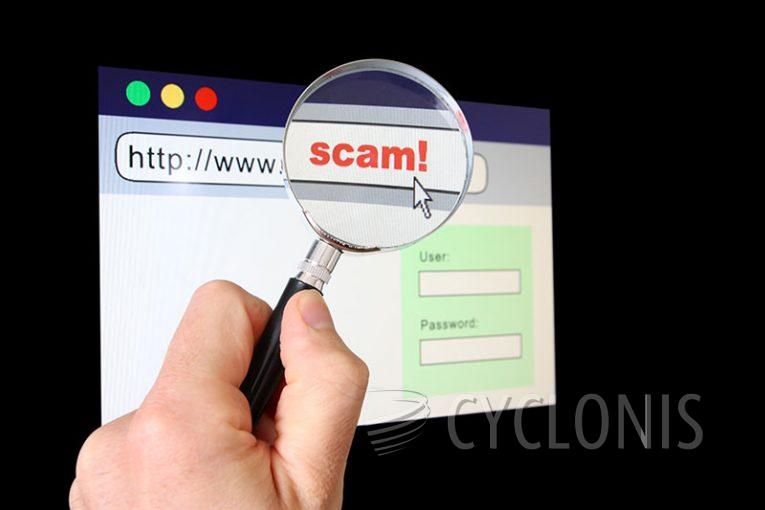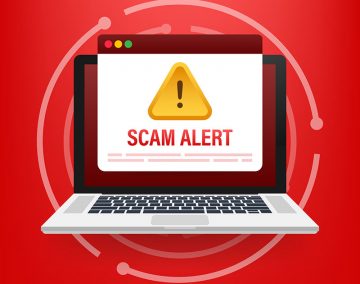Wisconsin DMV Scam Is Another Attempt at Fraud

Table of Contents
Understanding the Wisconsin DMV Scam
The Wisconsin Department of Transportation (WisDOT) Division of Motor Vehicles (DMV) has issued a warning regarding phishing scams targeting residents through fraudulent text messages. These messages falsely claim to be from the DMV and attempt to trick recipients into clicking on malicious links or sharing sensitive personal information.
One of the most common variations of this scam involves a "final reminder" about an "outstanding toll." However, Wisconsin does not have toll roads, making this a clear red flag for potential fraud. Scammers may also mimic the official branding of WisDOT communications to make their messages appear legitimate.
Here's what one of the fake messages says:
Wisconsin Department of Transportation Final Reminder:
You have an outstanding toll.Your tool account balance is outstanding. If you fail to pay by March 29, 2025. You will be penalized or subject to legal action.
What Scammers Want from Victims
The primary goal of this scam is to steal personal and financial information from unsuspecting recipients. By clicking on fraudulent links, victims may be directed to fake websites designed to capture login credentials, credit card numbers, or other sensitive data. In some cases, engaging with the scam could also lead to malware infections, putting an individual's devices and accounts at further risk.
Scammers may also attempt to pressure victims into making fraudulent payments by claiming that failure to pay a supposed toll or fee will result in penalties. This tactic relies on urgency and fear to manipulate individuals into taking immediate action before they have a chance to verify the legitimacy of the message.
Potential Consequences of Falling for the Scam
Individuals who respond to these phishing attempts may face a variety of risks, including:
- Financial Loss: Scammers could gain access to bank accounts or credit card information, leading to unauthorized transactions.
- Identity Theft: Stolen personal details may be used to open fraudulent accounts, apply for loans, or commit other forms of fraud in the victim's name.
- Compromised Devices: Clicking on malicious links may result in malware infections, which can steal data or even lock users out of their devices.
- Further Scams: Once an individual's information is exposed, they may become a target for additional phishing attempts or scams in the future.
Recognizing and Avoiding Phishing Scams
To protect themselves, Wisconsin residents should remain vigilant and question any unsolicited messages that claim to be from the DMV or WisDOT. Official government agencies do not request sensitive information through text messages or emails, and the Wisconsin DMV does not collect toll payments—making any such request a clear indication of fraud.
Here are some key signs of a phishing attempt:
- Unexpected Requests for Personal Information: Legitimate organizations will not ask for sensitive details through text messages or emails.
- Urgent or Threatening Language: Scammers often try to create a sense of panic to pressure victims into acting quickly.
- Suspicious Links or Attachments: Clicking on unfamiliar links can lead to fake websites or malware infections.
- Generic Greetings or Errors: Poor grammar, misspellings, or generic greetings like "Dear Customer" are common in phishing attempts.
Steps to Protect Yourself
To reduce the risk of scams like this, Wisconsin residents can take several precautions:
- Ignore and Delete Suspicious Messages: If an unsolicited text or email claims to be from WisDOT or the DMV and seems suspicious, do not engage with it. Avoid clicking on links, responding, or providing any personal details.
- Verify Directly with the DMV: If there are concerns about an official notice, visit wisconsindmv.gov directly rather than relying on messages received via text or email.
- Enable Account Notifications: Signing up for Wisconsin DMV's eNotify service can provide legitimate alerts about account activity and renewal reminders, helping users stay informed.
- Monitor Financial and Credit Reports: Regularly reviewing bank statements and credit reports can help detect unauthorized activity early.
What to Do If You Have Been Targeted
If someone has interacted with a phishing message or suspects they may be a victim of fraud, they should take immediate action to minimize potential damage.
- Report the Scam: Victims can file a report with their local law enforcement agency and report internet-based fraud at IC3.
- Seek Support and Advice: Organizations like AARP's Fraud Watch Helpline provide assistance to individuals who scams have targeted.
- Secure Accounts and Devices: If a fraudulent link has been clicked, changing passwords and scanning devices for malware is recommended.
Bottom Line
Phishing scams targeting Wisconsin DMV customers are designed to deceive individuals into revealing sensitive information under false pretenses. By understanding how these scams operate and knowing the warning signs, residents can take proactive steps to protect themselves. Staying cautious with unsolicited messages, verifying information directly with official sources, and monitoring personal accounts can help prevent fraud and ensure that scammers do not succeed in their attempts.







